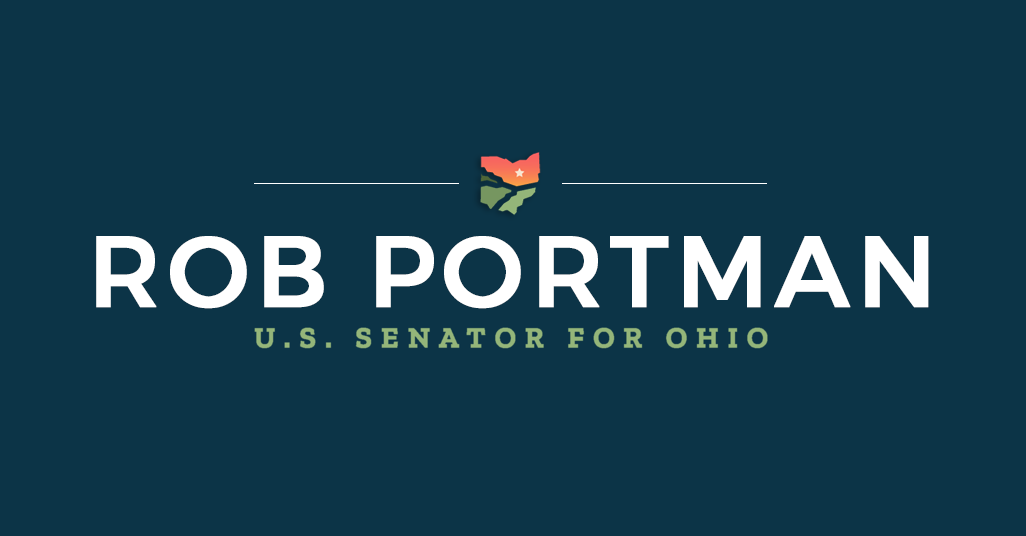Source: United States Senator for Ohio Rob Portman
Bipartisan Infrastructure Agreement Includes Key Elements of Senators’ BRIDGE Act to Expand Broadband Access
August 10, 2021 | Press Releases
WASHINGTON, DC – Today, U.S. Senators Rob Portman (R-OH), Michael Bennet (D-CO), and Angus King (I-ME) announced that certain provisions of their bipartisan BRIDGE Act have passed the Senate, as part of the Infrastructure Investment & Jobs Act (IIJA). IIJA now heads to the House of Representatives for consideration. The bill provides $65 billion for broadband, including more than $40 billion to states, U.S. territories, and the District of Columbia via block grants consistent with the senators’ bipartisan BRIDGE Act proposal to help close the gap in access to reliable high-speed internet that persists in certain communities. If passed by the House and signed into law, this would be the largest federal broadband investment in U.S. history.
“I’m pleased key pieces of this important legislation, included in the bipartisan infrastructure legislation, have passed the Senate. Too many rural and low-income communities in Ohio and across the U.S. lack affordable and reliable access to broadband,” said Portman. “By helping underserved areas rapidly gain broadband access, this historic piece of bipartisan legislation takes significant steps to finally close the digital divide.”
“The bipartisan infrastructure bill will make the largest ever broadband investment in American history, and I am beyond gratified that it draws heavily on my BRIDGE Act with Senators King and Portman,” said Bennet. “This historic investment will extend the promise of high-speed broadband to students, workers, farmers, and small businesses across the country, driving opportunity, transforming communities, and allowing millions more people to fully participate in modern American life. I want to thank my colleagues and co-sponsors Senators King and Portman. We would never have made it this far without their tremendous leadership and partnership.”
“The coronavirus pandemic has made it clear that broadband is essential infrastructure – which is why the Senate’s bipartisan infrastructure bill includes the largest-ever investment in broadband,” said King. “The bipartisan legislation includes $65 billion to support broadband deployment and help extend the internet’s opportunities to every corner of our country, so Americans of all backgrounds can fully participate in work, connect to remote and in-school learning, and access healthcare regardless where they live, access the connectivity they need to work, learn, shop, and more. I’m particularly thrilled that of that $65 billion, over $40 billion will go directly to states through block grants, reflecting my bipartisan proposal with Senators Bennet and Portman. These funds will increase broadband connectivity, affordability, and speeds for millions of Americans, while prioritizing the resilient, future-proof infrastructure that we need. This is a proud day, which will create enormous possibilities as more American communities get the tools they need to compete in the 21st century economy.”
Many of the BRIDGE Act’s key components are included in the Infrastructure Investment & Jobs Act, such as:
- Establishes $42.5 billion Broadband Deployment and Access Program, a formula-based grant program administered through the National Telecommunications and Information Administration (NTIA).
- Establishes a tiered approach to deployment in which states must serve the unserved first and foremost, then underserved areas, before disbursing funds for other eligible projects.
- Includes robust implementation requirements for the states. States are required to have a clear and transparent process for publishing their plans and making subgrantees aware of the process for obtaining funds.
- Eligible uses for grant funds include broadband infrastructure deployment, and activities related to broadband deployment (i.e. mapping and planning, connecting anchor institutions like libraries, data collection, and installation of Wi-Fi/internet structure.)
###
